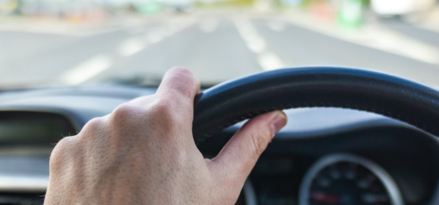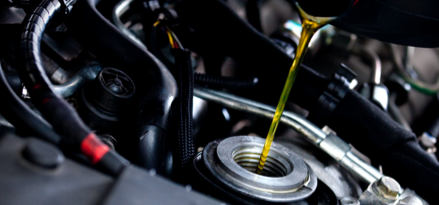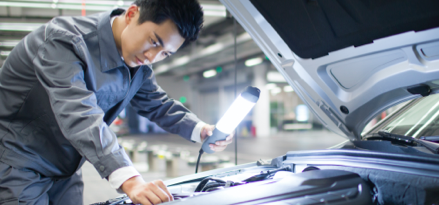
Your safer driving checklist
As the world continues to experience air travel restrictions and reduced public transport capacities, you may feel more inclined to drive further, or more frequently, than ever before.
No matter how near or far your journey, it’s a good idea to undertake a quick mechanical inspection before hitting the road. Just in case, maybe you should bookmark this safety checklist for later?

Go the extra mile ✓
Driving long-distance, in hot weather or carrying a trailer? If you answered “Check” to any of those queries then you should consider using synthetic lubricant for special protection against high engine temperatures. Mobil 1™ synthetic engine oils reduce wear and improve fuel economy to save you fuel money, kilometre after kilometre.

Feel the pressure ✓
Accurate tire pressure is crucial for your safety. An underinflated tire will make your vehicle harder to steer and can blow out while you’re on the road. Low tire pressure will waste fuel and, more importantly, heat your tires due to friction.
Fix this by buying an inexpensive tire pressure gauge, available from most auto parts stores, then check the pressure of your tires when the car has been stationary for at least three hours. Adjust to your carmaker’s suggested levels and don’t forget to replace those dust caps afterwards.

Keep cool ✓
In newer cars, engine coolant will last for 160,000-240,00km. If your car is less than four years old, check that the coolant tank, usually a transparent plastic bottle under the hood with the words "engine coolant" on the cap, is full.
If your car is older, you should check both the coolant tank and the radiator. If the coolant’s colour is rusty or looks like a pool of dirty water, then you should replace it before you drive.

Bring fluids ✓
Make sure to check your car’s oil level and oil change date. If you are close to the manufacturer's recommended oil change point, go ahead and change the oil before you embark on a longer drive.
It’s best to check your owner's manual, but the change interval for shift and gear oil is usually slightly longer than the engine oil change interval. Manually changing these oils is dirty work so consider seeking the assistance of a mechanic.
When your brake fluid ages, it turns into a brown syrup colour which causes the brake components to rust. Check the colour of the liquid in the brake oil tank and ensure that the oil level has reached the "full" mark.

Stay charged ✓
If your car battery has been used for several years, you should check that its terminals are not corroded, and that the wires are tightly connected. If they fall off while the car is driving, it will cause a harmful "voltage dip" and the alternator will malfunction.
Starter sounding sluggish? It is either due to corrosion or the battery could be dying. If it’s not a sealed, maintenance-free battery, it should be tested at a gas station. If it is a sealed battery, then check the output voltage.
If you see any signs of corrosion, such as a white powdery substance on the battery terminal, use a wire brush to remove them.

Go for a spin ✓
Don't assume that there are no problems today because your car drove fine yesterday. Take the vehicle out for a test drive on the local highway. Remember, this is a test, not an everyday drive, so pay close attention to the movement and sounds of the car.
Do you hear wheels rubbing or making a low noise? This may be due to broken wheel bearings or worn-out ball joints.

Read the signs ✓
After the car has stopped, check for calibration issues or tire wear. Do the brakes shake or make a harsh sound? A twisted rotor or worn pedals may be at fault.
Do you feel the brake pedal is weak? Perhaps it’s worn down to a brake fluid issue.
Does the headlight flash when turned off? It may be because the alternator belt is loose, out of power or the battery terminal is corroded.



